Tips for using AI in your small business
- Identify key use cases
- Utilize AI for data analytics
- Automate customer interactions
- Invest time into training
- Keep security in mind
- Shop around for the right vendor
- Stay ahead with AI education
For small businesses, any new advantage is a way to get ahead of the competition and grow operations. That’s why so many are turning to artificial intelligence (AI) to elevate their workflows. AI for small business has evolved to create a variety of new growth opportunities, from data analytics to customer service automation to operations optimization. But knowing which tools to lean on and how to use them can be a challenge in an ever-expanding marketplace.
Before you start your search for the perfect small business AI tool, it’s important to understand how these solutions can impact your organization. From best practices to top benefits, we broke down the key considerations you need to get started on your AI journey.
How can AI be used in small businesses?
With the sheer volume of AI tools for small businesses available in today’s marketplace, there’s a wide range of use cases for them. Depending on where you need help streamlining your business operations, AI solutions can assist in
- Sales and marketing
- Creative writing
- Customer service
- Project tracking and scheduling
- Bookkeeping
Many small businesses use AI-powered assistants like AI agents to save time and money by automating repetitive tasks in these areas. When trained and configured to understand your business workflows, AI-powered assistants can take over low-value tasks and free your team up for higher-value work.
The key word here is “configuration”; how you configure your AI small business tools will dictate their usefulness. That’s why investing in AI tools that make configuration easy — like Jotform AI Agents — is important.
With Jotform AI Agents, setting up your own personal AI assistant is as easy as following a few simple steps:
- Build your AI agent from scratch or choose from one of more than 7,000 free templates.
- Train your new AI agent by uploading internal documents, frequently asked questions (FAQs), knowledge base, links, or even asking it questions manually to dial in responses.
- Choose your preferred share or embed method and upload your AI agent to your website.
As you continue to use and train your AI agents, you may find new ways to leverage them for success. You may even find new types of AI agents specifically suited to your business needs — such as customer support agents, sales agents, or other general small business AI agents.
3 core benefits of AI implementation
Many businesses see AI as a tool with boundless potential to change the way they work. While this is true, many of the benefits AI solutions provide can be boiled down to three core categories:
Improved time efficiency
AI automation can perform simple, repetitive tasks faster than your team members. By cutting down the time it takes to perform these low-value tasks, your workflows will move more smoothly, allowing your team to do more work in the same amount of time.
Example: AI takes tasks off your team’s plate so they can put their time to better use, focusing on higher-value tasks that would have otherwise been delayed.
Reduced costs
AI is extremely beneficial for small businesses looking to cut back on their budget. While you may need to invest in the solution up front, these tools can cut back on costly delays, errors, and other common roadblocks that businesses face on the road to profitability.
Example: An AI customer service solution like Jotform AI Agents can scale alongside your business, adapting to influxes of customers as you grow. This allows you to cut back on future hiring costs while maintaining quality service.
Improved decision-making
AI can act as a partner in your decision-making process. Many AI solutions can analyze data and generate insights to drive success across your operations.
Example: AI can find opportunities for improvement in customer service or provide sales with qualified leads, allowing human agents to concentrate on revenue-driving tasks.
7 tips for using AI in your small business
While AI may have a variety of benefits for your small business, you can’t expect to gain maximum value by implementing it passively. To receive the benefits of AI, you need to follow best practices and understand how to choose the right tools, use them properly, and continually improve your solution over time.
1. Identify key use cases
The use cases for AI in small businesses can be overwhelming. To maximize the value of your investment, it’s important to identify how these tools could best support your operation. Some AI tools for small businesses are designed with specific use cases in mind, like chatbots or AI assistants. Whether you invest in a specialized tool like this will depend on your needs.
Before shopping around, make a list of the business areas where you feel you need the most help. Whether you’re looking to bolster customer service, operations, or sales, prioritizing your needs will help you narrow down your search for a suitable solution and sift through the massive number of AI tools available.
2. Utilize AI for data analytics
A top use case of AI in any business is processing data, as AI learns and pulls insights from large data sets through machine learning. This core capability makes customer data analysis an easy target for leveraging these advanced solutions. Not only does using AI for data analytics save you precious time, but it may also help you identify potential trends or insights you could have otherwise missed.
AI can pinpoint trends in customer satisfaction, customer issue response times, and monthly sales, and even identify potential upsell opportunities. By capitalizing on these insights, you can improve your workflows, customer satisfaction, and overall efficiency.
3. Automate customer interactions
Although today’s business landscape still needs human customer service agents, there are many opportunities to automate customer interactions with AI. For example, Jotform AI Agents has customer support features that can handle simple customer issues like FAQs. To turn your chatbot into one of the best AI chatbots for your business, you can train it with your internal customer data to quickly and accurately respond to customers without looping in a team member.
Automating simple or repetitive tasks can improve your workforce’s productivity and overall job satisfaction. Just keep in mind that AI still can’t handle every problem your customers face. Some complex issues require empathy, advanced experience, or even just a personal touch.
4. Invest time into training
Your AI tools won’t work exactly how you need them to right out of the box. AI tools improve and hone their capabilities through training. That’s why it’s vital to spend time training your AI with internal data, FAQs, and more. Jotform AI Agents even lets you test your AI using practice conversations, helping you prepare your tools for potential customer interactions without risking issues with actual customers.
Additionally, it’s important to collect and analyze user and customer feedback once you’ve implemented your AI tools. Gathering this feedback will help you glean insights on how to train and improve your solution to increase its value over time.
5. Keep security in mind
Data privacy is a common concern among AI users. Even AI tools for small businesses collect personal data that can lead to a loss in customer trust if it’s exposed in a privacy breach. The first element of protecting customer data is finding an AI solution that prioritizes security. Beyond that, there are a few additional steps you can take to protect privacy:
- Be transparent about what data you collect and what it’s used for
- Conduct security audits
- Build a plan in case of a security breach
- Establish ethical guidelines for your AI use
- Use secure networks and passwords
By protecting your customers’ data, you can help build customer loyalty and use your tools ethically.
6. Shop around for the right vendor
One of the most important parts of implementing artificial intelligence in your business is choosing the right partner. With the AI market being so saturated, this can be a difficult task. Once you’ve identified your core needs, consider additional factors like team size and budget. The ideal solution will offer the capabilities you’re looking for while fitting into the parameters of your operation.
Jotform AI Agents offers a free trial to get you started. You’ll get a feel for how well the solution operates within your workflow without the pressure of investing in an unknown program. If you like your experience with the free version or trial, you can always upgrade to a paid version later to unlock even more helpful features or continue using the solution after your trial ends.
7. Stay ahead with AI education
The best way to leverage AI as a small business is to keep up with the latest and greatest uses for this ever-evolving technology. There are many ways to stay current, for example, with the Jotform AI Agents podcast. Staying ahead of the curve with AI education can help you find new ways to maximize the value of your tools, identify new use cases, and discover new solutions that can elevate your business.
Take a big step for your small business
Implementing AI in your startup is an easy way to elevate your operational efficiency, your customer experience, and your bottom line as a whole.
Understanding the potential benefits and best AI practices for your small business can help you maximize the utility of these tools for your business. No matter what kind of solution you’re looking for, Jotform AI Agents are a top choice for improving your operations.
This article is aimed at small business owners, entrepreneurs, and decision-makers who are exploring how to implement artificial intelligence to improve efficiency, reduce costs, and stay competitive in 2025. It’s especially relevant for those new to AI or seeking practical guidance on where to begin, what tools to consider, and how to train and deploy AI solutions effectively across areas like customer service, sales, marketing, and operations.
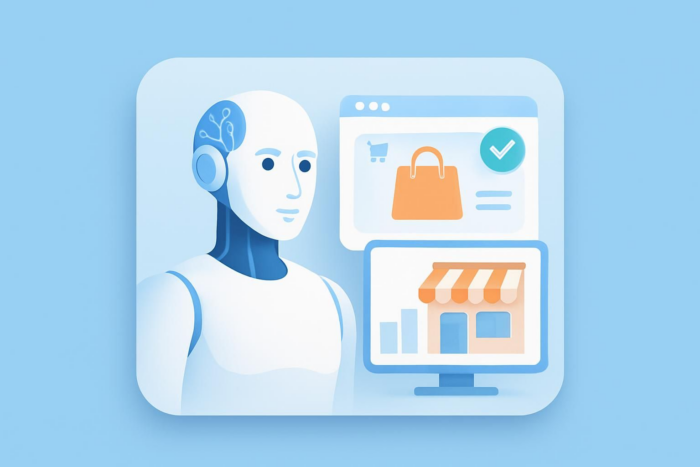


















































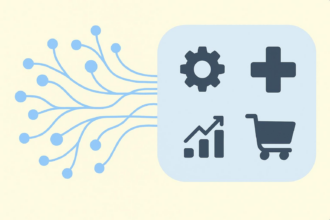






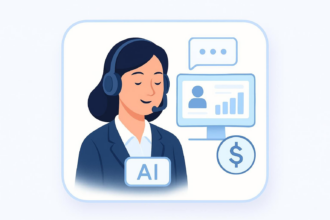




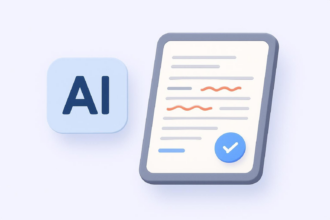
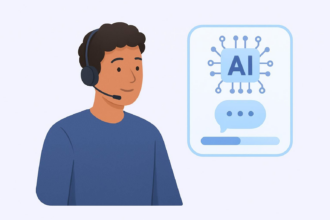




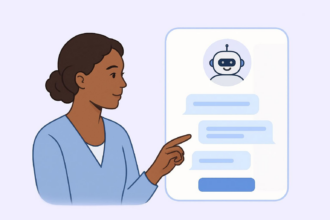
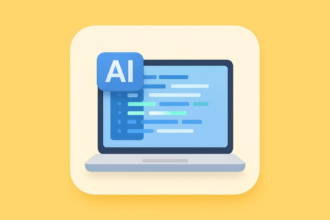





























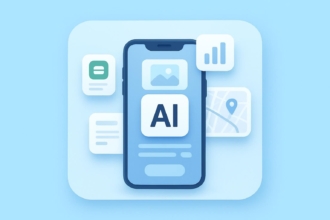


Send Comment: